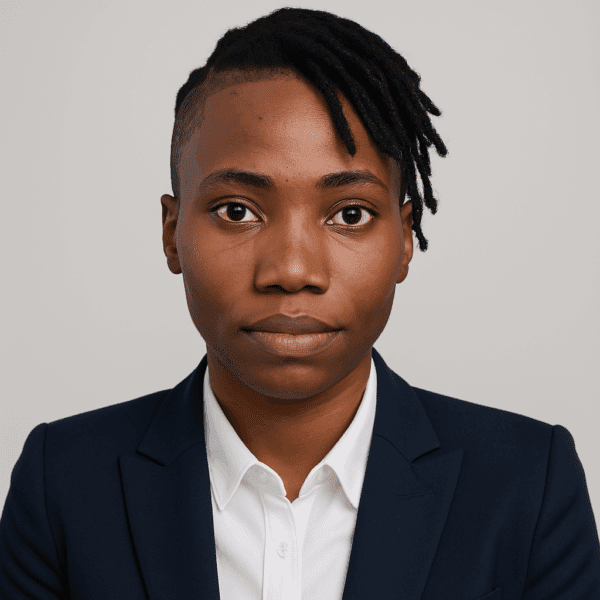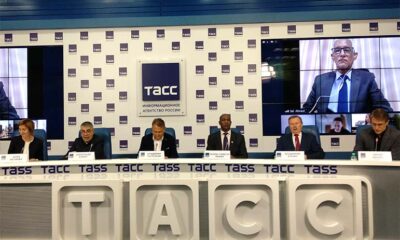Forgotten Dairies
55 Years After “The Rising Sun of Biafra is Set Forever” Declaration -By Ezinwanne Onwuka
As the dust from Kanu’s conviction has yet to settle and his supporters continue to cry foul, some questions hang heavily in the air: What is the future of the Biafran struggle? Has the ‘rising sun of Biafra’ finally set as Gowon triumphantly declared in 1970? Or will this be a case of silencing the messenger but not the message?

The Biafran struggle has suffered yet another devastating blow. And many sympathisers are struggling to come to terms with this latest roadblock since the secessionist struggle began in 1967.
Lieutenant Colonel Chukwuemeka Odumegwu-Ojukwu, the military governor of the Eastern Region, declared the region as an independent sovereign state named the Republic of Biafra on 30 May 1967. The Republic had its own flag, national anthem, currency, and uniformed security forces. On 6 July 1967, the federal government launched a ‘police action’ to repress the secession. This quickly escalated into a civil war, which lasted 30 months, to preserve the sovereignty of Nigeria as one ‘indissoluble and indivisible state’ and to reintegrate Biafra as part of Nigeria. That period remains one of the darkest chapters of Nigeria’s history. Millions of lives were lost – many fell to bullets and others to starvation.

As the heat intensified, Ojukwu fled the country as he could not counter the overwhelming federal military advances and the humanitarian crises. In his absence, Lieutenant Colonel (later Major-General) Philip Effiong, Ojukwu’s second-in-command, waved the white flag on 15 January 1970. In his victory message to the nation, the military head of state General Yakubu Gowon stated unequivocally: “The ‘Rising Sun of Biafra’ is set forever. It will be a great disservice for anyone to continue to use the word ‘Biafra’ to refer to any part of the East Central State of Nigeria.” His statement was premised on the fact that the Biafran struggle has been totally annihilated.
Much to Gowon’s chagrin, decades after he nipped the secessionist attempt in the bud, the struggle for Biafra still lingers. A radical rebirth of the struggle was championed by Nnamdi Kanu with the creation of the Indgenous People of Biafra (IPOB) in 2012, which was aimed at restoring the defunct Republic of Biafra. Before the establishment of IPOB, Kanu spread his separatist gospel through Radio Biafra, an iteration of the broadcast network established by the defunct Biafran government in 1967. Beyond advocating for the independence of Biafra from Nigeria, he used the radio station to push inflammatory and often incendiary rhetoric that emboldened his loyalists to resort to violence in the name of Biafran struggle.
Kanu was arrested in 2015. After spending a year in detention, he was granted bail on health grounds, but later went into hiding following a military raid on his home in Umuahia. He was rearrested in 2021 in Kenya and was extradited to Nigeria to resume trial on multiple counts of terrorism related to his separatist campaign. The years-long trial came to an end on 20 November 2025 with his conviction on all seven counts and sentencing to life imprisonment as against the death penalty he deserved. His IPOB had been proscribed as a terrorist organisation by the Nigerian government in 2017.
Meanwhile, during Kanu’s incarceration, the agitation for secession did not cease. Simon Ekpa, a Finnish citizen of Nigerian descent, assumed de facto leadership of the movement and continued spreading the Biafran gospel. Just like Kanu, he portrayed violent resistance as a necessary tool for the liberation of the Igbos from the ‘zoo’. Ekpa, using social media, declared sit-at-home lockdowns in the south-east to protest the detention of Kanu and to press for the actualisation of the Republic of Biafra. He was picked up by Finnish authorities in November 2024 on allegations of sponsoring terrorist activities in Nigeria. In September 2025, the Päijät-Häme District Court in Finland sentenced him to six years in prison after convicting him of terrorism-related offences, including inciting the public to commit crime for terrorist purposes. According to a court document cited by the BBC, he “attempted to promote the independence of the so-called Biafra region in south-eastern Nigeria by illegal means.”
With these emotion-provoking developments that are only two months apart, Gowon’s words: “The ‘rising sun of Biafra’ is set forever” readily comes to mind. Once again, we witness the Biafran struggle brought to its knees. Though there is a difference between struggle of 1970 and that of today: in Ojukwu’s time, the Republic of Biafra was a reality though it was short-lived; in contrast, the twenty-first-century agitation never materialised into something tangible. For years, strife, anarchy, chaos, violence, and mayhem were deployed by the now-jailed separatist leaders all in the name of fighting for self-determination. Yet, nothing was achieved. The only visible results were the bloodshed and economic ruin that became the order of the day across the south-eastern states. As J.K. Omotosho rightly observed in Federal Republic of Nigeria v Nnamdi Kanu, “Are all these actions consistent with agitations for self-determination? The answer to this is in the negative.”
It is important to state that self-determination is indeed a legally recognised right under the African Charter on Human and Peoples’ Rights, domesticated in Nigeria. Article 20 describes the right as “unquestionable and inalienable.” But this right does not legitimise violence, coercion, or terror. Again, as per Omotosho in the same case: “Agitation for self-determination cannot be detrimental to the people who are supposed to be beneficiaries of the said self-determination. The usual sit-at-home orders primarily affects his own people. The killings of people who disobey the order are his own people. Ordering of closure of churches, schools, as well as markets also affects his own people. They are unable to trade, go to school, farm, or even worship on such days. The threat of violence and death have prevented the people from going about their legitimate business. Are these acts…consistent with agitation for self-determination, the answer is in the negative.”
As the dust from Kanu’s conviction has yet to settle and his supporters continue to cry foul, some questions hang heavily in the air: What is the future of the Biafran struggle? Has the ‘rising sun of Biafra’ finally set as Gowon triumphantly declared in 1970? Or will this be a case of silencing the messenger but not the message?
Only time will tell.
Ezinwanne Onwuka writes via ezinwanne.dominion@gmail.com.










